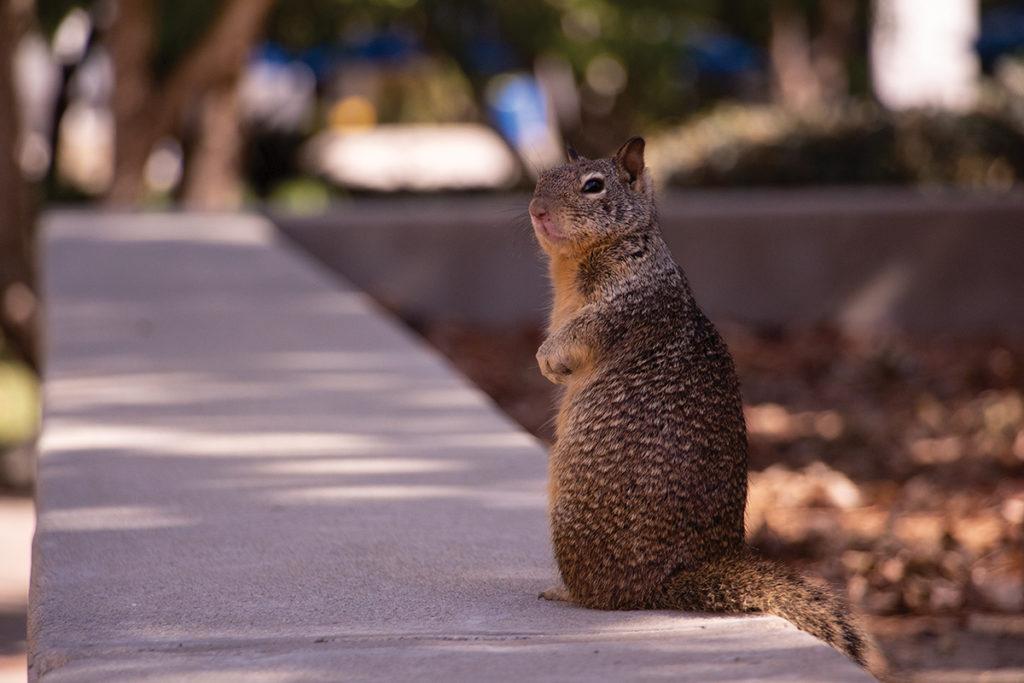Reporter
As the squirrel population continues to grow on CSU Bakersfield’s campus, the question of how best to keep that population in control begs to be answered.
The California ground squirrel employs the use of tunnels for shelter and storage. These tunnels can be destructive to walkways, plant roots, and sprinklers. The burrows can cause injury when people trip over holes, as well as complicate tasks like mowing the lawns.
Being herbivorous, ground squirrels eat plants. Since they can’t distinguish what’s off limits and have no self-control, any plant matter is fair game. In the worse case scenario, the damage the squirrels cause the plant life on campus has the potential to leave many areas around CSUB barren.
Squirrels also carry diseases such as rabies and bubonic plague. Not to mention their feces are a health hazard as well, in the same way rat and mice feces are.
Chad Johnson, a 21-year-old business major, feels that the squirrel population has grown since his freshman year here.
“I’m currently a senior here at CSUB,” said Johnson. “I see a lot more walking around than have before, I feel … in the last couple years, specifically this year and last year, they are everywhere. I have seen them in places I haven’t seen them before.”
When farmers try to control ground squirrels, they often use poison and traps to lower the population damaging their crops. However, this method would cause issues for the local endangered kit foxes that also live on campus.
Poison is still poison, no matter what animals ingest it and kit foxes would be just as susceptible to squirrel poison as squirrels, which is a big problem.
Michael Lukens, chief of staff to the president of CSUB, was able to shed light on the tactics used to exterminate the squirrels.
“California ground squirrels are considered rodents and are open for removal all year round.” said Lukens
The San Joaquin kit fox is a natural predator to the ground squirrel. The kit fox population has decreased recently, and this has caused an increase in the ground squirrel population.
While ground squirrels over campus are being contained, Lukens said that the deed is carried out ethically.
“Ground squirrels create destructive holes that damage our landscape and create trip hazards in the lawns areas,” said Lukens. “Our animal control program is overseen by a biological consulting firm who ensures we follow all state and federal guidelines especially when it comes to our kit fox population. If we ever have questions or concerns, they are contacted immediately.
Trent Stevens, a 24-year-old public relations major, shared how he felt about controlling the squirrel population. “I’m not entirely worried about controlling the population of squirrels. I do believe there are too many on campus, so we should try to push them back to their natural setting,” said Stevens.









Dinna Simmons • Oct 9, 2018 at 1:29 pm
Several years ago I did some research on this on campus. The squirrels were trapped and then drowned. Is this the ethical way to kill the squirrels? It is apparently acceptable, but there are more humane ways to kill them. I am disappointed that there is no secondary research in your article. Where are the kit foxes? Are there alternatives to killing the squirrels? Has a squirrel in campus ever had the plague. What is the specific health hazard faced from the feces? And so on.